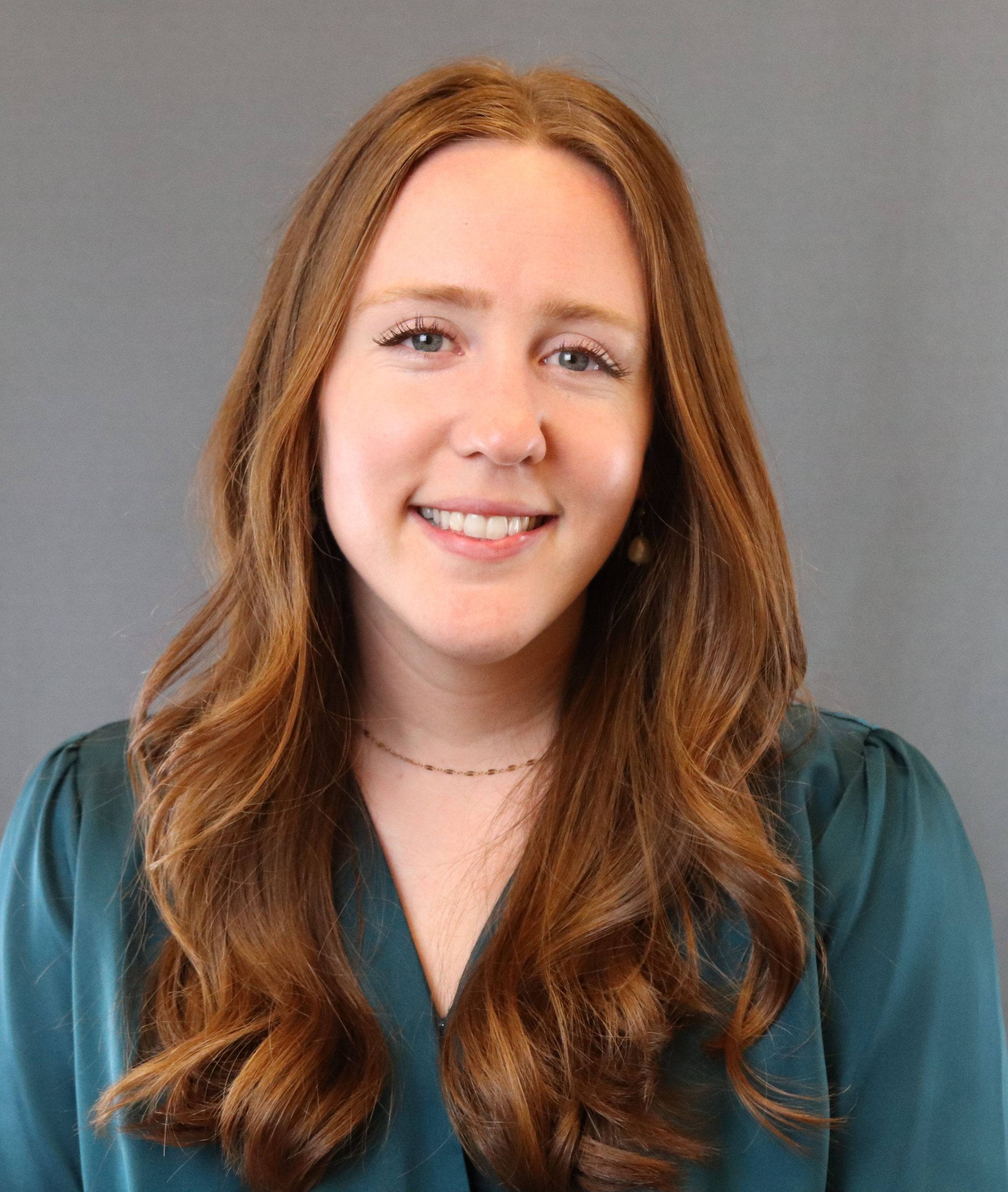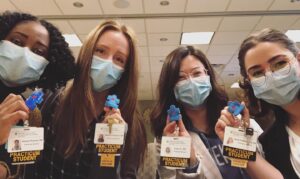One of the Thompson Center’s primary missions is to train the next generation of leaders in the field of autism care. One aspect of this training mission is providing a learning environment for students pursuing their doctoral degrees in psychology. By providing these future child psychologists real-world hands-on experience working with patients, the Thompson Center is helping to increase the number of trained autism experts around the country to help provide more resources for more families.
A typical doctoral trainee will spend one year training at most practicum sites before choosing to move on with their career. On occasion, a doctoral trainee may choose to return for a second year of training. Until this year, the Thompson Center has had one graduate trainee return for a third year. However, this year the Thompson Center has four talented graduate trainees returning for an unprecedented third year. This speaks to both the high-quality training opportunities the Thompson Center provides as well as the dedication of these future psychologists to maximize their training to become the best care providers possible. Over the last few weeks, we have met these four doctoral interns. This week we’ll finish up by learning more about Mallory Stevens.
When did you arrive at the Thompson Center?
I started my practicum placement in June 2019 and with Alexis, Daisy, and Sarah!
What is your bio and educational background before the TC?
This is actually my eighth year in Columbia. I completed my undergraduate degree in psychology at Mizzou in 2017 and started the school psychology graduate program the following semester. I originally was pursing my educational specialist degree to be a school psychologist in schools, but I always knew that I wanted to work closely with children with Autism Spectrum Disorder (ASD) and intellectual disabilities. I figured that pursuing a doctoral degree would allow me to focus on clinical practice and autism research, so here I am!
What are your career interests/goals? What do you hope to be doing professionally in 5-10 years?
I see myself entering a career that similar to my current role at the TC. I really enjoy working closely with children and their families in autism evaluations. I am also really interested in exploring academic intervention consultation and developing school-clinic partnerships, but these are long-term goals and projects for research.
What created the passion within you to pursue a career in this field?
When I was an undergraduate student, I mentored a peer with ASD. We met every week to chat about his experiences, questions, and thoughts about schoolwork, social life, and post-graduation plans. He also had the best Robin Williams impression I have ever heard — he could do everything from Ms. Doubtfire to Dead Poet’s Society.
Why did you decide to return to the Thompson Center for a third year of training?
The training and supervision here are amazing, and our supervisors actively look for new opportunities for us. Every year has offered something new and exciting. For example, I’ve worked on research with my clinical supervisor for the past year! It’s also really fun to return with my TC cohort. We all work really well together and have grown closer as colleagues and friends.
How do you think your time at the TC will influence the direction of your career?
The TC has helped me identify what I want to do after school — this kind of work! Collaborating with different providers has also shown me that there are so many things I can do in one place. I could conduct research like Dr. Nowell or teach graduate courses like Dr. Knoop. I could lead initiatives to make care more accessible and equitable like Dr. Sykes (e.g., TOT week, TCIC).I could participate as a faculty member on LEND training grants like Dr. O’Donnell or effectively lead an entire team like Dr. Brooks. That’s really exciting to me.
What is the most valuable thing you have learned while working at the TC so far?
I’d say the most important lessons from the TC have been (a) find an interdisciplinary team that prioritizes high-quality services and makes work feel fun and rewarding, and (b) prioritize family-centered care in every step of an evaluation.
What do you hope to learn and/or accomplish in the rest of your time training at the TC?
Next year I look forward to supervising a new student and learning the ins and outs of high-quality supervision that I’ve experienced myself!
Any last thoughts about working at the TC?
I wish every student at Mizzou could experience the TC. The psychology providers are very intentional and emphasize student training goals. It’s fun, collaborative, and I learn something new every day. Completing practicum at the TC has been the most rewarding part of my experience in graduate school.




